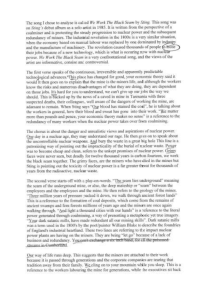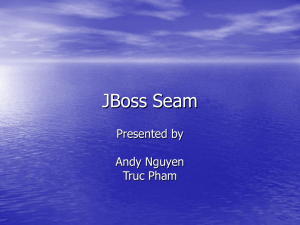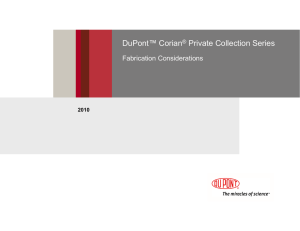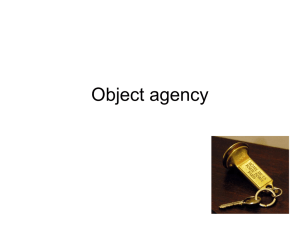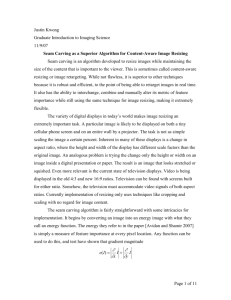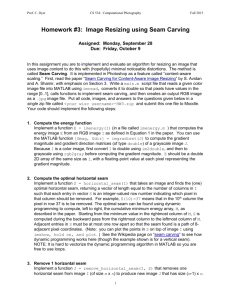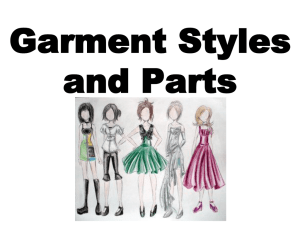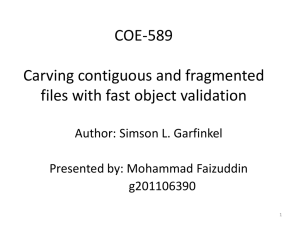ppt.
advertisement
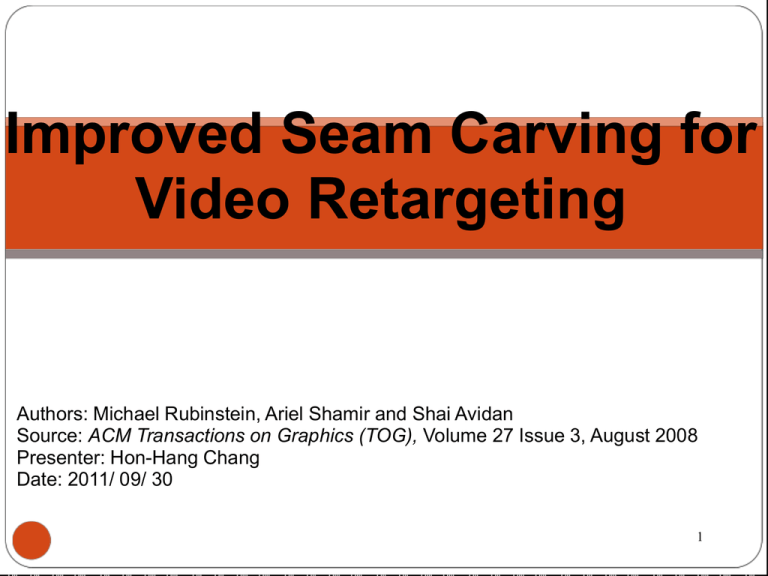
Improved Seam Carving for
Video Retargeting
Authors: Michael Rubinstein, Ariel Shamir and Shai Avidan
Source: ACM Transactions on Graphics (TOG), Volume 27 Issue 3, August 2008
Presenter: Hon-Hang Chang
Date: 2011/ 09/ 30
1
Outline
•
•
•
•
•
•
Introduction
Preliminaries
Seam Carving using Graph Cut
Forward Energy
Results
Conclusion
2
• Because of human perception, the temporal may even be more disturbing than
spatial in video, as the human eye is highly sensitive to movement.
Introduction
• 2D manifolds
To treat video as 3D
cube
1 D path on 2D image
(Seam)
2D manifolds in a 3D
volume
• In this paper the author define a new formulation of
seam carving using graph cuts.
3
•
Introduction
A whole seam
A seam is a monotonic and connected path of pixels going
from the top of the image to the bottom
Or from left to right
• The image size is reduced by one either in the horizontal or the vertical
dimension.
• video should support retargeting capabilities as it is displayed on TVs,
computers, cellular phones.
4
Temporal term
•
Preliminaries
Spatiotemporal L1-norm
Spatial term
Etemporal (i, j ) max{| I t (i, j ) |}
t 1
t
Espatial (i, j ) max{| I t (i, j ) | | I t (i, j ) |}
t 1
x
y
N
N
Among this, {It} t=1~N
Eglobal (i, j) Espatial (1 )Etemporal
Where,
α ∈ [0, 1]
Extend the spatial L1-norm to a spatiotemporal L1-norm:
• Motion artifacts are more noticeable
• Taking α= 0.3
5
Seam Carving using Graph Cuts
• Graph cut
S (Source)
arc1
T (Sink)
arc2
Source
Sink
arc3
arc4
6
Seam Carving using Graph Cuts
• Optimal seam in graph cut
An optimal seam must be:
1. 1.Valid
- A simple cut cannot define a seam carving
2. Monotonic
- Including only one pixel in each row (or column)
3. Connected
-The seam must be connected
• The proposed formulation extend seam carving to video and define
a monotonic and connected 2D manifold seam inside the video
cube.
7
Seam Carving using Graph Cuts
• Graph cut for image (Non-monotonic)
•
Every internal node P is connected to its four neighbors Nbr(Pi,j) = {Pi−1,j , Pi+1,j , Pi,j−1,
Pi,j+1}.
∂y(i, j) = |I(i+1, j ) − I(i, j)|
Vertical direction
Pi-1,j
Pi,j-1
Pi,j
Pi,j+1
Pi+1,j
Neighbors pixels
∂x(i, j) = |I(i, j + 1) − I(i, j)|
Horizontal direction
8
Seam Carving using Graph Cuts
• Graph cut for image (Unconnected)
• Prove_1:
9
Seam Carving using Graph Cuts
• Graph cut for image (Original)
E1(i, j) =∂x(i, j) + ∂y(i, j)
• Prove_2:
10
Seam Carving using Graph Cuts
• Graph cut for image
• We can use any energy function defined on the pixels as the
weight of the forward horizontal arcs .
• Achieve the same results as the original dynamic programming
based seam carving
11
Seam Carving using Graph Cuts
• Graph cut for video
• The extension to video is straightforward.
12
Seam Carving using Graph Cuts
• Graph cut for video
• Computation time is quadratic in the number of voxels. O(mn2)
- n #of nodes ; m #of arcs
• Performance issues are encountered already for high
resolution images
• The graph cut approach to seam carving allows us to extend the
benefits of content-aware resizing to video. Still, the method is not
perfect and no single energy function was shown to perform properly
in all cases. Therefore, they introduce a new energy function that
better protects media content, and improves video results.
13
Forward Energy
• Remove the seam with the least amount of energy from the
image
• The inserted energy is due to new edges created by previously
non adjacent pixels that become neighbors once the seam is
removed
• To measure the real change in energy after a
removal of a seam
They measure the difference in the energy of the image after the
removal (It=i+1) and the energy of only those parts that were not
removed in the previous image
14
Forward Energy
15
•
Forward Energy
Forward Energy in Graph Cut
+LR = | I(i, j+1)− I(i, j−1)| (arc weight between pi,j and pi,j+1)
difference between the Left and Right neighbors
+LU = | I(i-1, j)− I(i, j−1)| (arc weight between pi,j and pi-1,j)
difference between the Left and Up neighbors
-LU = | I(i+1, j)− I(i, j−1)| (arc weight between pi,j and pi+1,j)
difference between the Left and Up neighbors with respect to the end
16
point of the arrow
•
Forward Energy
Forward Energy in Graph Cut
+LR = | I(i, j+1)− I(i, j−1)| (arc weight between pi,j and pi,j+1)
difference between the Left and Right neighbors
+LU = | I(i-1, j)− I(i, j−1)| (arc weight between pi,j and pi-1,j)
difference between the Left and Up neighbors
-LU = | I(i+1, j)− I(i, j−1)| (arc weight between pi,j and pi+1,j)
difference between the Left and Up neighbors with respect to the end
point of the arrow
17
Results
18
Results
19
Conclusion
Video retargeting is achieved using graph cuts and we have
shown a construction that is consistent with the dynamic
programming approach.
20
